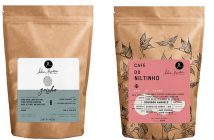The movement echoes #We can do it, in the USA and #She is the roaster, in Europe, committed to increasing the female presence in roasting specialty coffees
According to the legend of “The Story of Dancing Goats”, a shepherd named Kaldi, who lived in the forested region of Ethiopia, observed that his goats got very agitated when eating the red fruits of a bush. He then decided to try them and realized they were delicious!
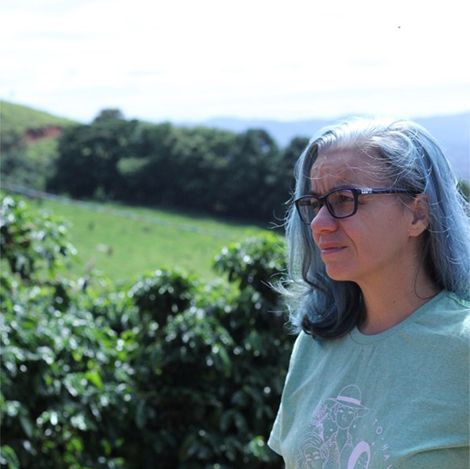
Moni Abreu – #Elas Torram
The shepherd took the fruits to a religious person and commented on what had happened to his goats. The later, in turn, prayed all night for enlightenment and, thanks a divine intuition, brought the fruit seeds to the fire. Delighted with the aroma, he immediately prepared a drink that was delicious! And voila, that was how the second most consumed drink in the world coffee, emerged!
“The observing shepherd would only have half the honor of the discovering coffee; the other part, undoubtedly belongs to the one who, for the first time, thought to roast this berry. Brillat-Savarin, The Physiology of Taste, 1797.
By the script above, two men, the pastor and the religious, were responsible for such a great discovery. But was the person who thought of toasting the berries really male? Or perhaps his wife, whose main job was to tend the house and feed her offspring?
The official story is contested by the caffeologist and toaster Moni Abreu, responsible for the creation of the Collective, as she likes to play with the words, #Elas Torram. That even defends a revision in the legend “If it is clear to humanity that it was up to women to defend, care and feed their children, it is certain that we were the first berries of that fruit we now call coffee,” he explains.
And he argues: “If we always fed the offspring, how was a religious who discovered the roast? So much so that in Africa, to this day it is women who are engaged in this task. But in the “official” story, no female came in to say that they saw the fruit as a food. This legend is a bullshit, which first appeared in an American children’s book, and has since erased us from history. It is so easy and recurring for society to erase women from history,” he says.
Do women roast coffee?
It is true that, to this day, women’s role in coffee culture is not highly valued. They act throughout the chain but do not always get the proper credits. And in the roasting it is no different. Women have been roasting coffee for a long time, including in Brazil, always fighting against the prejudices of a very backward sector.
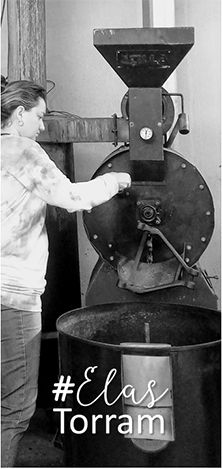
Fernnanda – Café Conosco
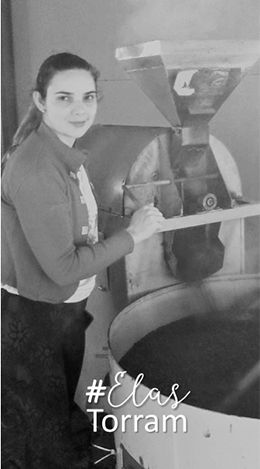
Maely – Café Dorico
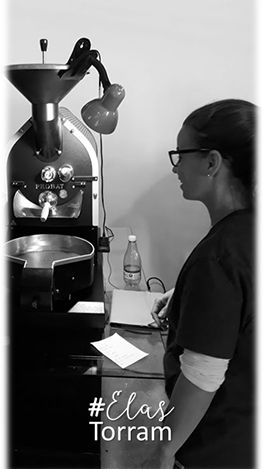
Moni – Café³!
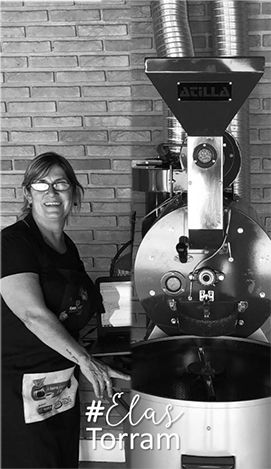
Elda – La Finca Brazil
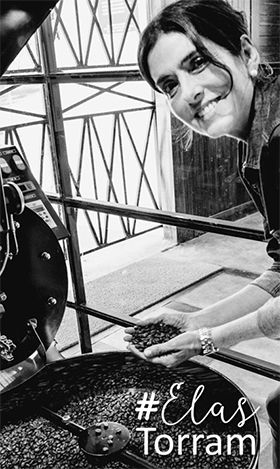
Caprice – Ísole Cafés
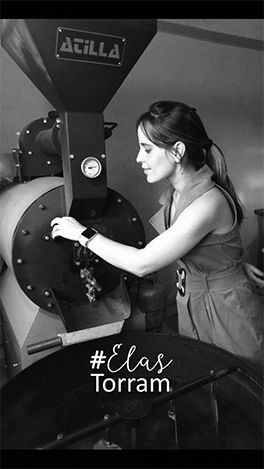
Dani Alkmin – Heritage Coffee
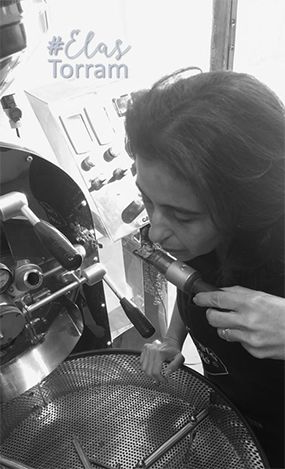
Graziela – Pietá Café
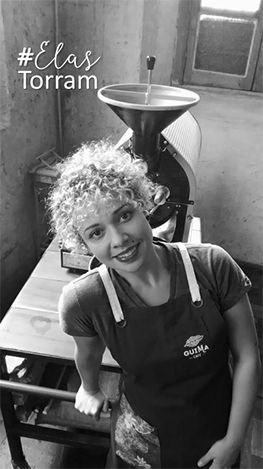
Rafaela – Guima Café
Led by caffeologist and roaster Moni Abreu, #Elas Torram was created inspired by the US’s She’s the Roaster and Girls who grind in Europe. And for those who think it is all about whining, in less than a year, it already counts on 122 professionals, scattered throughout Brazil, many of them also producers of 52 brands of specialty gourmet coffee and commodities.
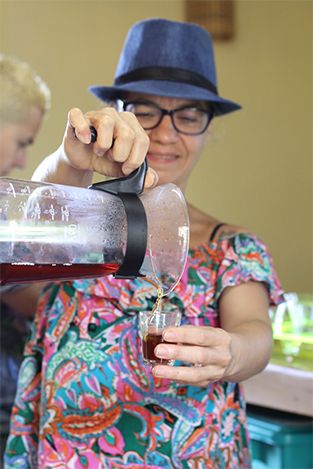
#Elas Torram
“We created #Elas Torram in September last year, made up of a group of coffee roaster masters who, thanks to social media, got to know each other and identify with each other. Its main objective is to identify, value and make the professionals of coffee roasting in Brazil visible”, says Moni.
“At first, #Elas Torram was created to share our experiences, doubts and afflictions. Quickly, these women interacted with a great force and now we are fighting for the market to understand the real importance of female work in roasting,” she explains. Professionals meet regularly to assist each other with technical improvement, courses, lectures and even psychological support. “The problems women face are the same regardless of their economic field: how to combine their occupation with the household chores and the mother’s role?”, she asks.
And she adds up, saying that “in 2019, society should no longer be overwhelmed when we announce to be masters of roasting! Yes, we have been there for a long time, even if society refers to all of us in the male gender, just because the profession in the Brazilian Classification of Occupations does not include the term in the female gender yet”, she angrily says.
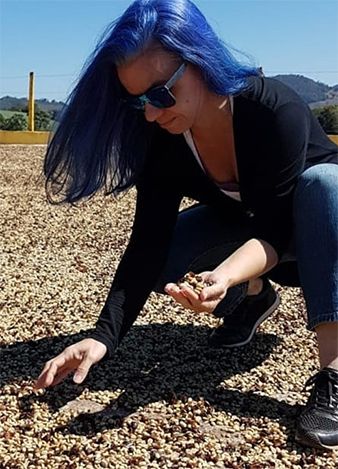
Moni Abreu – #Elas Torram
At the last Fispal, held in Sao Paulo last June, the group met, bought a stand and performed for the first time outside the virtual world. “Our work was very well-received and we even sold a lot more coffee than we had planned. We enjoy the experience so much that it is all right to participate in the International Coffee Week, which takes place in November, in Belo Horizonte. This time it will be a bigger stand and we expect more women from the #Do they roast,” says an excited Moni.


